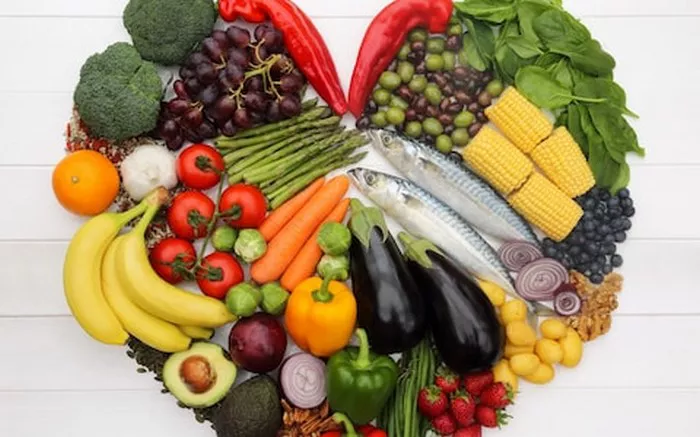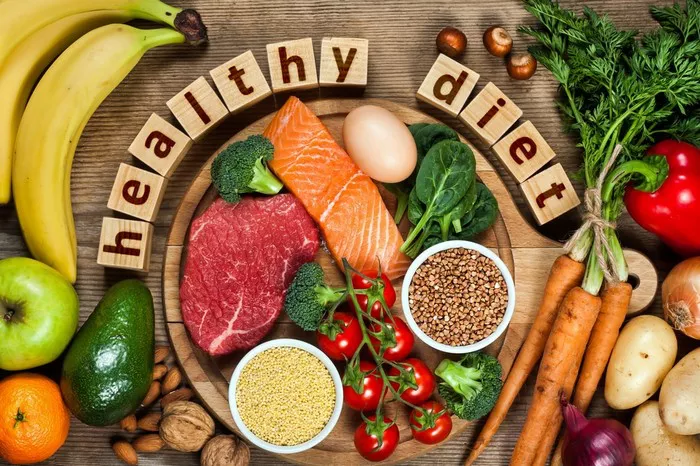Breakfast is often considered the most important meal of the day. It jump-starts your metabolism, replenishes your glucose supply, and provides essential nutrients that help fuel your day. Eating a balanced and nutritious breakfast can set a positive tone for your eating habits throughout the day. But with so many options available, what exactly is the best healthy food to eat for breakfast?
In this article, we will explore a variety of healthy breakfast foods, highlighting why they are beneficial and how they contribute to your overall well-being.
The Importance of a Healthy Breakfast
Eating a healthy breakfast offers numerous benefits, including improved concentration, better energy levels, and even weight management. Skipping breakfast or eating foods high in sugar or unhealthy fats can lead to sluggishness, irritability, and overeating later in the day. Therefore, it’s essential to choose foods that are nutrient-dense and provide sustained energy.
The best breakfast should include a combination of:
Protein: Helps keep you full and supports muscle repair.
Fiber: Aids digestion and helps maintain stable blood sugar levels.
Healthy fats: Provides long-lasting energy.
Complex carbohydrates: Offers a slow release of energy throughout the day.
Now, let’s dive into some of the best healthy foods you can eat for breakfast.
SEE ALSO: What Protein Diet Is Good for Weight Loss?
1. Eggs
Eggs are one of the most versatile and nutritious breakfast options. They are packed with high-quality protein, vitamins, and minerals. The protein content in eggs helps to keep you full for longer, reducing the likelihood of snacking before lunch.
Why Eggs Are Great for Breakfast:
Rich in Protein: One large egg contains about 6 grams of protein.
Nutrient-Dense: Eggs are a good source of vitamins A, D, B12, and riboflavin.
Healthy Fats: Eggs contain healthy fats that provide long-lasting energy.
Supports Weight Management: Eating eggs for breakfast can reduce calorie intake throughout the day.
How to Include Eggs in Your Breakfast:
- Scrambled or poached eggs with whole grain toast.
- A vegetable omelet packed with spinach, tomatoes, and mushrooms.
- Hard-boiled eggs as a quick grab-and-go option.
2. Greek Yogurt
Greek yogurt is another excellent breakfast choice because it is rich in protein and probiotics, which support digestive health. Unlike regular yogurt, Greek yogurt is strained to remove excess whey, making it thicker and higher in protein.
Why Greek Yogurt Is Beneficial:
High in Protein: A single serving of Greek yogurt contains around 10-15 grams of protein, making it more filling than regular yogurt.
Probiotics: Greek yogurt contains live cultures that support gut health.
Low in Sugar: Plain Greek yogurt is naturally low in sugar, unlike many flavored yogurts.
How to Enjoy Greek Yogurt for Breakfast:
- Add fresh berries, nuts, and a drizzle of honey for a nutrient-packed parfait.
- Mix in chia seeds or flaxseeds for added fiber and omega-3s.
- Use Greek yogurt as a base for smoothies to make them creamier and more filling.
3. Oatmeal
Oatmeal is one of the best choices for a fiber-rich breakfast. Made from whole oats, it provides complex carbohydrates that digest slowly, keeping your blood sugar levels stable and helping you stay energized throughout the morning.
Benefits of Eating Oatmeal:
High in Fiber: Oats are rich in a type of soluble fiber called beta-glucan, which can help lower cholesterol and promote heart health.
Sustained Energy: Oats provide long-lasting energy due to their slow digestion rate.
Versatile and Customizable: You can add various toppings to make oatmeal more nutritious and flavorful.
Ways to Enjoy Oatmeal:
- Add fresh fruits like bananas, berries, or apples for a natural sweetness.
- Sprinkle with chia seeds, flaxseeds, or nuts for extra fiber and healthy fats.
- Make overnight oats by soaking them in milk or yogurt for a convenient grab-and-go option.
4. Whole Grain Toast with Avocado
Whole grain toast paired with avocado is a simple yet nutrient-packed breakfast. Whole grains provide fiber and complex carbohydrates, while avocados are loaded with healthy fats, vitamins, and minerals.
Why Whole Grain Toast and Avocado Are Healthy:
Fiber-Rich: Whole grain bread is an excellent source of fiber, which promotes healthy digestion.
Healthy Fats: Avocados contain monounsaturated fats that support heart health and provide lasting energy.
Vitamins and Minerals: Avocados are rich in potassium, vitamin C, and vitamin K.
How to Prepare This Breakfast:
- Mash avocado onto toasted whole grain bread and sprinkle with salt, pepper, and red pepper flakes for added flavor.
- Add a poached or fried egg on top for extra protein.
- Top with sliced tomatoes, radishes, or microgreens for added nutrients.
5. Smoothies
Smoothies are a quick and easy way to pack in a lot of nutrients at breakfast. By blending together fruits, vegetables, protein, and healthy fats, you can create a balanced meal that is both delicious and nutritious.
Why Smoothies Make a Great Breakfast:
Highly Customizable: You can tailor your smoothie to meet your nutritional needs by adding different ingredients.
Rich in Nutrients: By adding leafy greens, fruits, and seeds, you ensure your smoothie is packed with vitamins, minerals, and antioxidants.
Hydrating: Many smoothie ingredients, such as fruits and vegetables, are high in water content, helping you stay hydrated.
Ideas for Healthy Breakfast Smoothies:
Green Smoothie: Blend spinach, banana, almond milk, and a scoop of protein powder.
Berry Smoothie: Combine mixed berries, Greek yogurt, chia seeds, and water or milk.
Tropical Smoothie: Use mango, pineapple, coconut milk, and a handful of kale for a refreshing start to the day.
6. Chia Pudding
Chia seeds are an excellent source of fiber, omega-3 fatty acids, and antioxidants. When mixed with liquid, chia seeds absorb the moisture and form a gel-like consistency, making them ideal for chia pudding.
Benefits of Eating Chia Pudding:
High in Fiber: Just two tablespoons of chia seeds contain around 10 grams of fiber, which is about 40% of your daily requirement.
Omega-3 Rich: Chia seeds are one of the best plant-based sources of omega-3 fatty acids, which support heart and brain health.
Filling and Satisfying: Chia pudding can help keep you full for longer due to its fiber content and gel-like texture.
How to Make Chia Pudding:
- Mix chia seeds with almond milk or coconut milk and let it sit overnight in the fridge.
- Add toppings like fresh berries, sliced almonds, and a drizzle of maple syrup or honey for sweetness.
- For a chocolate version, mix in cocoa powder and a bit of vanilla extract.
7. Cottage Cheese with Fresh Fruit
Cottage cheese is a protein-rich, low-fat dairy product that pairs well with a variety of fruits. It is a great source of calcium and provides a creamy texture that complements the sweetness of fruit.
Why Cottage Cheese Is a Healthy Choice:
High in Protein: A half-cup of cottage cheese contains around 14 grams of protein, making it very filling.
Low in Fat and Calories: Cottage cheese is an excellent option if you’re looking to maintain a balanced diet.
Calcium-Rich: Like other dairy products, cottage cheese is a great source of calcium, which is essential for bone health.
How to Eat Cottage Cheese for Breakfast:
- Top with fresh fruits such as peaches, pineapple, or berries.
- Add a sprinkle of cinnamon or a drizzle of honey for extra flavor.
- Pair with whole-grain crackers or toast for added fiber.
8. Nut Butter on Whole Grain Bread
Nut butters, such as almond or peanut butter, are a great source of healthy fats and protein. Paired with whole grain bread, they make for a satisfying and nutritious breakfast.
Why Nut Butter and Whole Grain Bread Work Well Together:
Healthy Fats: Nut butters provide unsaturated fats that are good for heart health.
Protein-Rich: Nut butters contain protein, which helps keep you full.
Fiber from Whole Grains: Whole grain bread adds fiber, aiding digestion and providing slow-releasing energy.
How to Prepare This Breakfast:
- Spread almond or peanut butter on whole grain toast and top with banana slices or chia seeds.
- Drizzle with a bit of honey for added sweetness.
- Add a sprinkle of cinnamon for extra flavor and antioxidants.
9. Fresh Fruit with Nuts or Seeds
A simple and refreshing breakfast can be made with fresh fruit and a handful of nuts or seeds. This combination provides a balance of natural sugars, fiber, healthy fats, and protein.
Benefits of This Breakfast:
Natural Sugars: Fruits provide natural sugars that give you quick energy without the crash that comes with refined sugars.
Healthy Fats and Protein: Nuts and seeds add protein and fats that keep you satisfied and help stabilize blood sugar.
Antioxidant-Rich: Many fruits are high in antioxidants, which protect your cells from damage.
Ideas for Fruit and Nut/Seed Combinations:
- Apple slices with almond butter and chia seeds.
- A bowl of mixed berries with a sprinkle of flaxseeds and walnuts.
- A banana topped with peanut butter and sunflower seeds.
Conclusion
Choosing the best healthy food for breakfast doesn’t have to be complicated. The key is to combine whole, nutrient-dense foods that provide a good balance of protein, fiber, healthy fats, and complex carbohydrates. From eggs and oatmeal to smoothies and chia pudding, there are plenty of options that can fuel your morning and support your overall health. Remember, a balanced breakfast can help set the stage for healthy eating habits throughout the day.
Related topics:



























